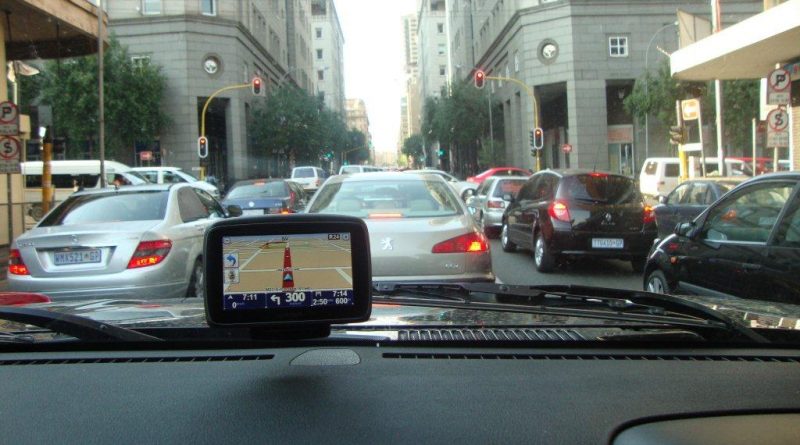In the future of mobility, are you part of the problem – or the solution?
According to Statistics South Africa’s 2018 General Household Survey, only 30.6% of South Africans own cars; this is up from 22.9% in 2003 and 28.5% in 2013. Of course, urban South Africans have more cars than rural South Africans.
Also interesting is StatsSA’s National Household Travel Survey which looks at mobility trends over time. In 2003, 15.3% of respondents cited travel time and 14.9% travel cost as the most important factors when choosing a mode of transport. By 2013, these numbers had rocketed to 32.6% and 26.1% respectively.
These are figures motor manufacturers care about – because it’s our bottom line.
But, there’s more to it than the numbers. Not too long ago, someone I like, and trust, and work with closely, left KIA for a similar but lower-paying job because it would be easier for her to get to and from work. This, in combination with the statistics that I keep such a close eye on, set me to thinking deeply.
For me, this isn’t about selling cars. It’s about thinking about how we, as a motor car manufacturer, can more positively impact people’s ability to get to where they need to be, especially given a relatively poor public transport infrastructure?
How could we make motoring more affordable to existing vehicle owners? And how could we help to break the cycle of disenfranchisement that so many South Africans, trapped by the legacy of apartheid spatial development and far from where they can earn a living, must endure?
And so Project Anna – named, appropriately, for the employee we lost – was born. Where it has led us is very exciting and points to a better way in getting people where they need to go, as easily as possible.
A big reality to face when finding these solutions is the cost of owning and operating a car. Buying it is only half the story – keeping it going is the other half.
According to statistics released in August 2019 by motor finance house WesBank, the average monthly mobility basket – the cost of car repayments, insurance, fuel and maintenance – is R7 851. This is 3% higher than in 2018, and a shocking 28% more than 2014 – only five years ago.
On top of this, the South African motorist is one of the highest taxed in the world. On average, 30% of the new vehicle list price consist of taxes, including import duties, excise duties, carbon tax, tyre levies, VAT and port charges and around 37% of the fuel price consists of taxes.
The upshot is this: there are more and more cars on our roads, people worry more and more about how long it takes them and what it costs to get around, and the spiralling cost of ownership means owning a car is increasingly further out of reach to more people.
I, and KIA, understand that motor manufacturers don’t dictate the market (our customers do), and that we need to transform with the times and remain relevant. We must serve the concepts of both vehicle ownership and mobility – the traditional and the non-traditional.
Project Anna has afforded us the opportunity to do exactly that. And through it, we’ve found a partnership that we believe makes a strong business case for a better tomorrow for all of us.
After months of internal discussion and debate, and looking into what was out there, we found a solution – and a South African one at that. It’s a tech start-up called Lifti, which has developed an app that truly unlocks the immense potential of ride sharing for both drivers and passengers.
Briefly, drivers and passengers register on the app and are vetted; passengers pay to ride. Passengers enter their desired pick-up and drop-off locations and receive suggestions of possible matches travelling in the same direction at the same or similar times and select whom they would like to ride with. Passengers can choose between once-off and recurring trips. Passengers can send a message with pick up instructions for easier pickups. Once passengers have arrived safely at their destination, they pay the driver securely on their app and provide a rating. The driver rates the passenger/s and the passenger rates the driver.
The beauty of Lifti, for us, is that it looks forward to the market of the future, where ownership and mobility patterns will be different to those of today, while simultaneously offering better solutions to today’s challenges. And in doing so, it promises safety, reliability and convenience.
The upshot is that more South Africans will be able to buy vehicles, simply because Lifti can help them defray that challenging mobility basket cost. But it also means that those cars will less likely carry a single person, as passengers take advantage of being able to go where they want more quickly and more cost-effectively – addressing the burgeoning commuter concerns of time and cost.
Secondary benefits include less traffic congestion, less air pollution and less noise, all of which will serve to improve quality of life for everyone.
What this means for us is that, firstly, we get to develop a much deeper understanding of commuters. Currently we only really get to canvass car buyers, but Lifti will give us insights into passengers, too. Secondly, we will be able to be even more forward-looking about, and better prepared for, what the future of mobility holds.
And finally, it bolsters the KIA brand as one that uses technology to address commuter challenges, provide more environmentally sound options, and offer better lives to more people – not just those who can afford to own cars right now.
We were sorry to see Anna leave our organisation, and her reasons for doing so cut to the quick for us; after all, we’re about mobility, so why should even our own employees struggle with it?
But her departure forced us to think about people’s daily mobility reality, and that there must be a better way. It turns out that there is.
About Lifti
Lifti is the next generation of lift club. It’s a new way of getting around.
The locally owned Lifti app offers a tech-savvy transportation solution to a new generation of South Africans. It’s a more convenient way for people to get where they’re going.
Lifti is all about sharing travel costs. It provides an affordable way to get to work or from A to B. It’s not a way for drivers to earn a living but passenger tariffs help cover fuel and maintenance costs, car repayments, etc.
Lifti keeps mobility fluid. Register one account and seamlessly change between being a driver or passenger.
Lifti lets you make your own way.
KIA’s relationship with Lifti
Lifti is collaborating with KIA to help South Africans move up in the world. KIA Motors and Lifti are running a pilot project to promote the benefits of shared mobility. Lifti will transform transport trends. We challenge South Africans to think about transport in a new way.




